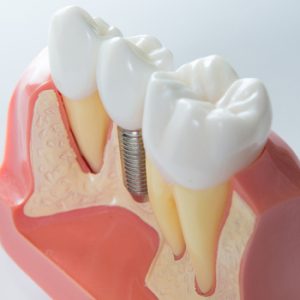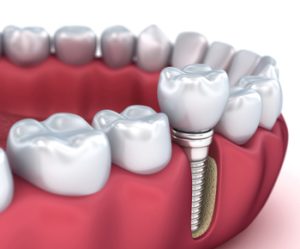Dental implants have become a widely chosen option for people with missing teeth, offering a stable and natural-looking alternative to dentures. Whether you’re in Australia or considering Malaysia’s dental implant options, the choice of location can significantly impact your overall experience, quality of care, and long-term results. In this blog, we’ll dive deep into the differences between getting dental implants in Malaysia versus Australia, highlighting the advantages of undergoing treatment in Australia.
What Are Dental Implants?
Dental implants are titanium fixtures surgically placed into the jaw bone, serving as artificial tooth roots. Once healed, they provide a stable base for replacement teeth, such as a dental crown. The process restores both the function and appearance of natural teeth, making it a preferred solution for people with missing teeth.
The dental implant procedure requires surgical procedures that involve precise placement, thorough planning, and extensive post-operative care. To ensure the best possible outcome, it’s vital to choose a reputable dental clinic with experienced dental professionals.
Why Consider Dental Implants in Malaysia?
In Malaysia, dental clinics generally offer a range of dental implant procedures and dental treatments.
However, while the cost of dental implants may seem lower upfront, the implant process overseas carries risks, especially when considering long-term outcomes. This is where Australia holds significant advantages.
Advantages of Dental Implants in Australia
When considering dental implants, it is crucial to weigh all factors, especially when comparing treatments in different countries. While Malaysia offers cost-effective solutions, Australia provides unmatched advantages in terms of quality, technology, and care. From stringent regulatory standards to personalised aftercare, dental implants in Australia offer long-lasting benefits that ensure your health and smile are well-protected. Below, we’ll explore the key advantages of getting dental implants in Australia and why it remains the superior choice for many patients.
1. High-quality implants from Reputable Professionals
In Australia, dental clinics are regulated by the Dental Board of Australia, ensuring that all dental professionals have undergone continuous professional development and hold the necessary qualifications. When you choose to undergo dental implants in Australia, you’re assured that only appropriately qualified health practitioners perform the dental implant surgery.
Australian dentists use high-quality implants, often sourced from leading international manufacturers, ensuring long-term durability. Titanium implants and materials used for dental restoration in Australia are of the highest quality, translating into lower risks of implant failure.
2. Precise Implant Placement with Advanced Technology
Australia’s dental industry is at the forefront of technological advancements. The use of computer-guided implant surgery allows for accurate placement, reducing complications and ensuring that artificial teeth look and function naturally. The technology supports a more seamless implant process, from planning to implant placement, improving the chances of a successful outcome.
3. Comprehensive Post-Operative Care
The healing process after dental implant procedures is crucial to the success of the treatment. Australia’s dental clinics provide extensive post-surgery instructions tailored to individual needs, ensuring your recovery is as smooth as possible. Australian clinics often offer follow-up appointments to monitor the bone growth around the titanium implant, ensuring the replacement tooth integrates well with your jaw bone.
In Malaysia, aftercare may not be as comprehensive, especially for patients engaging in dental tourism. Long-distance travel can complicate follow-up care, potentially raising the risks of implant failure because of inadequate monitoring during the healing process.
4. Expertise in Complex Cases
Australia boasts a network of highly experienced dental professionals with extensive training in handling complex cases. Whether you have bone loss, require bone grafting, or need implants in the upper jaw, Australian clinics are well-equipped to manage these challenges with advanced technology and techniques.
Malaysia’s healthcare system is improving, but when it comes to handling complicated dental implant cases, Australia has a clear advantage with access to continuous professional development and modern dental facilities.
5. Stringent Safety Standards
Australia’s healthcare system follows strict safety regulations, particularly surgical procedures like dental implants. These rules ensure that all aspects of the dental implant procedure, from local anaesthesia to implant surgery, are carried out with the highest level of care. The robust regulatory framework means that Australian dental clinics provide dental implant treatments in line with national safety standards, reducing the risk of complications or implant failure.
In Malaysia, safety standards may vary depending on the clinic and region. This inconsistency could mean a greater risk during the dental implant procedure, especially for international patients unfamiliar with the country’s healthcare regulations.
6. Personalised Care from Experienced Practitioners
Malaysia’s dental tourism model often emphasises quick turnarounds, which might compromise the thorough planning and patient-centred care seen in Australia. While dental implant costs may be cheaper in Malaysia, the level of personal care may not match that of an Australian local dentist.
7. Advanced Techniques for Bone Loss and Restoration
Bone loss can be a concern for individuals looking to replace missing teeth. Australian dental clinics offer advanced procedures like bone grafting and precise implant placement, making it possible for even those with significant bone loss to undergo implant surgery. These techniques are performed by experienced dental professionals skilled at restoring function and aesthetics.
While some clinics in Malaysia may offer similar procedures, the availability and quality of bone grafting services can vary. In Australia, practitioners with more skill and experience handling advanced cases like this are more reliable.
8. Lower Long-Term Risks and Complications
Although dental implants cost more in Australia than in Malaysia, the long-term benefits far outweigh the initial investment. The high standards of care, use of premium materials, and advanced techniques mean that implants placed in Australia are more likely to last a lifetime with proper care. Risks of implant failure, post-surgery complications, and bone loss are significantly lower when patients choose high-quality dental implants in Australia.
In Malaysia, the risk of needing corrective surgeries or experiencing complications may be higher due to varying levels of aftercare and the quality of implants used. The short-term savings in Malaysia could ultimately lead to higher costs for patients if corrective treatments are needed later.
9. Consistent Results with Trusted Technology
Australia’s investment in the latest dental technology ensures consistent and reliable results for dental implant procedures. From computer-guided implant surgery to the use of advanced technology in dental laboratories, Australian patients benefit from state-of-the-art techniques that improve the precision and success rates of dental implants.
In Malaysia, while many clinics offer modern facilities, the quality and availability of advanced dental technologies can be inconsistent. This difference can affect the accurate placement of implants, the quality of the artificial tooth, and the overall success of the procedure.
10. Peace of Mind with Long-Term Support
One of the greatest advantages of getting dental implants in Australia is the peace of mind that comes with knowing your local dentist is always available for follow-up care. From regular check-ups to managing any post-operative concerns, patients in Australia enjoy ongoing support to ensure their dental health remains in top condition.
In contrast, for patients undergoing dental implants in Malaysia as part of dental tourism, accessing long-term support can be challenging. Travelling back for post-operative care is costly and inconvenient, which can increase the risk of implant-related complications down the road.
11. Ease of Communication and Language
One of the often-overlooked advantages of getting dental implants in Australia is the ease of communication. English is the primary language spoken in Australian dental clinics, ensuring that patients can clearly understand every step of the dental implant process, from the initial consultation to post-operative care. This clear communication allows patients to ask questions, discuss concerns, and receive detailed explanations of their dental implant procedures without the risk of miscommunication.
In Malaysia, while many clinics cater to English-speaking patients, the language barrier can sometimes be an issue. Misunderstandings during important discussions, such as implant placement options or post-surgery instructions, could potentially lead to confusion or complications. In Australia, communication is seamless, ensuring that patients fully understand their treatment plans and feel confident every step of the way.
12. Recovery at Home with Familiar People
Another significant advantage of choosing dental implants in Australia is the comfort of recovering at home surrounded by familiar people. Undergoing a major procedure like dental implant surgery can be both physically and emotionally taxing. Being able to recover in your own home, supported by family and friends, provides an added layer of comfort and peace of mind.
In contrast, opting for dental implants in Malaysia may require you to recover in an unfamiliar environment, often without the support network you would have at home. This could lead to increased stress, especially if complications arise during the healing process. Having the ability to rest at home with the guidance of your local dentist and the support of loved ones in Australia greatly enhances the recovery experience, ensuring that you follow through with post-operative care while maintaining your overall well-being.
Dental Implant Tourism: Is It Worth It?
Many patients are drawn to dental tourism for its promise of low-cost treatments. However, travelling overseas for dental implant surgery is not without its pitfalls. While Malaysia may offer cheaper initial dental implant costs, it’s crucial to consider long-term implications.
Invasive procedures carry risks, and any issues that arise post-surgery could require expensive remedial work in your home country, negating any initial savings. Moreover, the convenience of having your local dentist handle your dental implant treatment from start to finish ensures continuity of care and higher chances of success.
The Dental Implant Procedure: A Delicate Journey to a New Smile
When it comes to choosing the right solution for replacing missing teeth, understanding the intricacies of the dental implant procedure is essential. It’s not just about restoring your smile—it’s about making a well-informed decision that aligns with your dental needs and health. The dental implant process is a delicate and highly precise procedure that requires careful planning and expertise to ensure long-lasting success. Before deciding to undergo this transformative treatment, it’s important to know each step involved and how critical every phase is to achieving the best possible outcome.
Understanding the Dental Implants Procedure: A Quick Overview
The dental implant procedure includes surgically fixing a titanium implant into the jaw bone, which serves as the foundation for an artificial tooth such as a dental crown. This procedure is highly recommended for individuals with missing teeth, as it gives a durable and natural-looking replacement that functions much like natural teeth. The entire process takes place over several stages to ensure that the implant integrates well with the bone and surrounding tissues.
Step 1: Initial Consultation and Assessment
Before the procedure begins, an initial consultation is conducted with your local dentist. During this consultation, your dental health is thoroughly assessed, and detailed scans or X-rays are taken to determine whether you have adequate bone structure for the implant placement. Your dentist will also check for other dental issues, such as gum disease or bone loss, that might need to be addressed before proceeding.
This is a crucial step, as the success of the implant largely depends on your jaw bone’s condition and overall oral health.
Step 2: Preparing for Surgery
If any additional or preparatory procedures are needed, such as bone grafting in case of insufficient bone density, sinus lifts or tooth extractions, these will be completed before the dental implant surgery. This ensures that your jaw bone is strong enough to support the implant.
The use of advanced technology, including computer-guided implant surgery, allows for precise implant placement, which reduces risks and improves recovery times. At this stage, your dentist will also discuss any post-surgery instructions and what to expect during the healing process.
Step 3: Implant Placement
The next stage involves the actual placement of the dental implant. Under local anaesthesia, your dentist will make a small incision in the gum to reach the jaw bone. A hole is then carefully drilled into the bone, and the titanium implant is inserted. Titanium is used because it is biocompatible, meaning it fuses well with the bone in a process called osseointegration.
Once the implant is placed, the gum is sutured back, and the healing process begins. This part of the implant procedure is the most delicate, as it requires the implant to integrate fully with the jaw bone over several months to ensure a strong foundation for the replacement tooth.
Step 4: Healing and Osseointegration
The healing process is crucial for the implant and bone bonding. This process can take from 3 to 6 months, depending on factors like bone density and overall health. During this time, it’s essential to follow all post-operative care instructions from your dentist to avoid complications such as infection or implant failure.
Follow-up appointments will be arranged regularly to track bone growth around the implant and ensure the healing process is progressing well. Practising good oral hygiene habits and avoiding hard foods during this time will also help achieve a successful result.
Step 5: Placing the Abutment
Once the implant has fully fused with the bone, the next step is to place an abutment, which is a small connector piece that holds the replacement tooth or dental crown in place. This minor procedure is performed under local anaesthesia and involves reopening the gum to attach the abutment to the implant.
After the abutment is placed, the gums must heal for a few weeks before the final step of placing the replacement tooth.
Step 6: Final Placement of the Replacement Tooth
Finally, a custom-made dental crown is attached to the abutment, completing the restoration. The dental crown is designed to match the colour, size, and shape of your surrounding teeth, ensuring a natural appearance. This new replacement tooth is durable, functional, and designed to last a lifetime with proper care.
Your dentist will ensure the replacement tooth fits perfectly in terms of aesthetics and function, giving you the confidence to smile, eat, and speak naturally.
Post-Surgery Care and Maintenance
After the dental implant procedure, maintaining good oral hygiene is essential to prevent infections and ensure the long-term success of the implant. Regular dental check-ups, proper brushing, and flossing around the implant area are key to avoiding complications.
Your dentist will provide specific guidelines on post-operative care, including any dietary restrictions, pain management, and cleaning techniques to support a smooth recovery.
Final Thoughts: Why Australia Wins
If you’re missing a tooth and considering dental implants, Australia offers a safe, reliable, and high-quality solution that ensures your oral health is prioritised from start to finish.
Choosing to undergo dental implants in Australia means investing in your future, ensuring your replacement teeth look and function like your natural teeth while safeguarding your overall dental well-being.
If you are considering dental implants and need consultation, contact Dr Jack Yang at (02) 8806 3712 and (02) 9000 1778.
Note: Any surgical or invasive procedure carries risks. Before proceeding, you should seek a second opinion from an appropriately qualified health practitioner.
References:
- minfo. (n.d.). The true cost of dental tourism: Hidden expenses and long-term consequences. Medium. https://medium.com/@minfo/the-true-cost-of-dental-tourism-hidden-expenses-and-long-term-consequences-d8cd38c8dd52
- Cleveland Clinic. (n.d.). Dental implants. Cleveland Clinic. https://my.clevelandclinic.org/health/treatments/10903-dental-implants
- WebMD. (n.d.). What to know about dental implant complications & risks. WebMD. https://www.webmd.com/oral-health/what-to-know-about-dental-implant-complications-risks
- 4.Streeter, S. M. (2022, April 13). Dental bone graft: Materials, procedure, and recovery. Healthline. https://www.healthline.com/health/dental-bone-graft
- Australian Dental Association. (2015). ADA guidelines for infection control. ADA. https://ada.org.au/getmedia/e99d888d-c0ab-4be1-b889-85e5193fd7e7/ADA_Guidelines_Infection_Control_Guidelines.pdf
- 6.The Joint Commission. (2007). Language Differences as a Barrier to Quality and Safety in Health Care: The Joint Commission Perspective. Joint Commission Perspectives on Patient Safety, 7(8), 8-10. https://www.ncbi.nlm.nih.gov/pmc/articles/PMC2078554/












